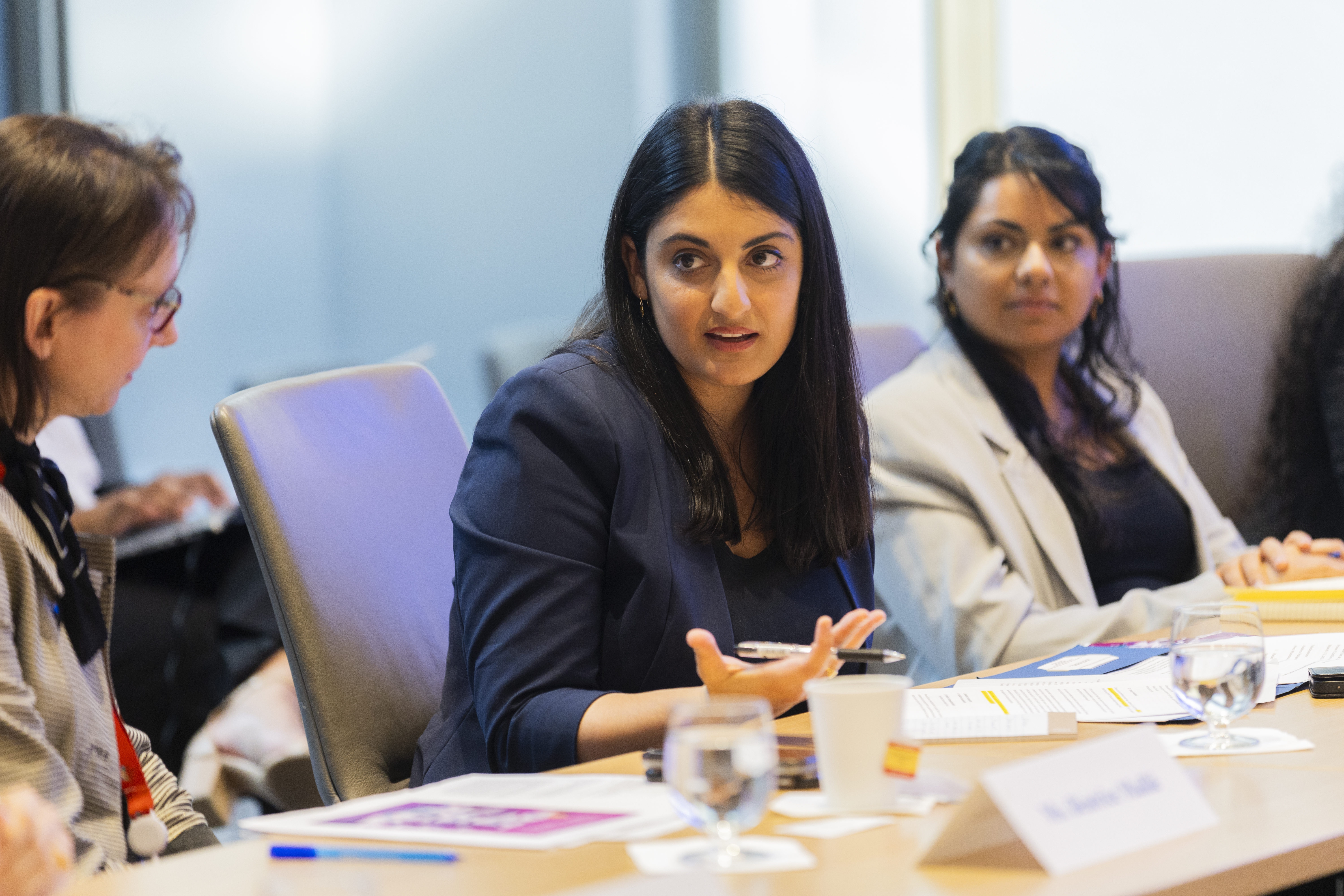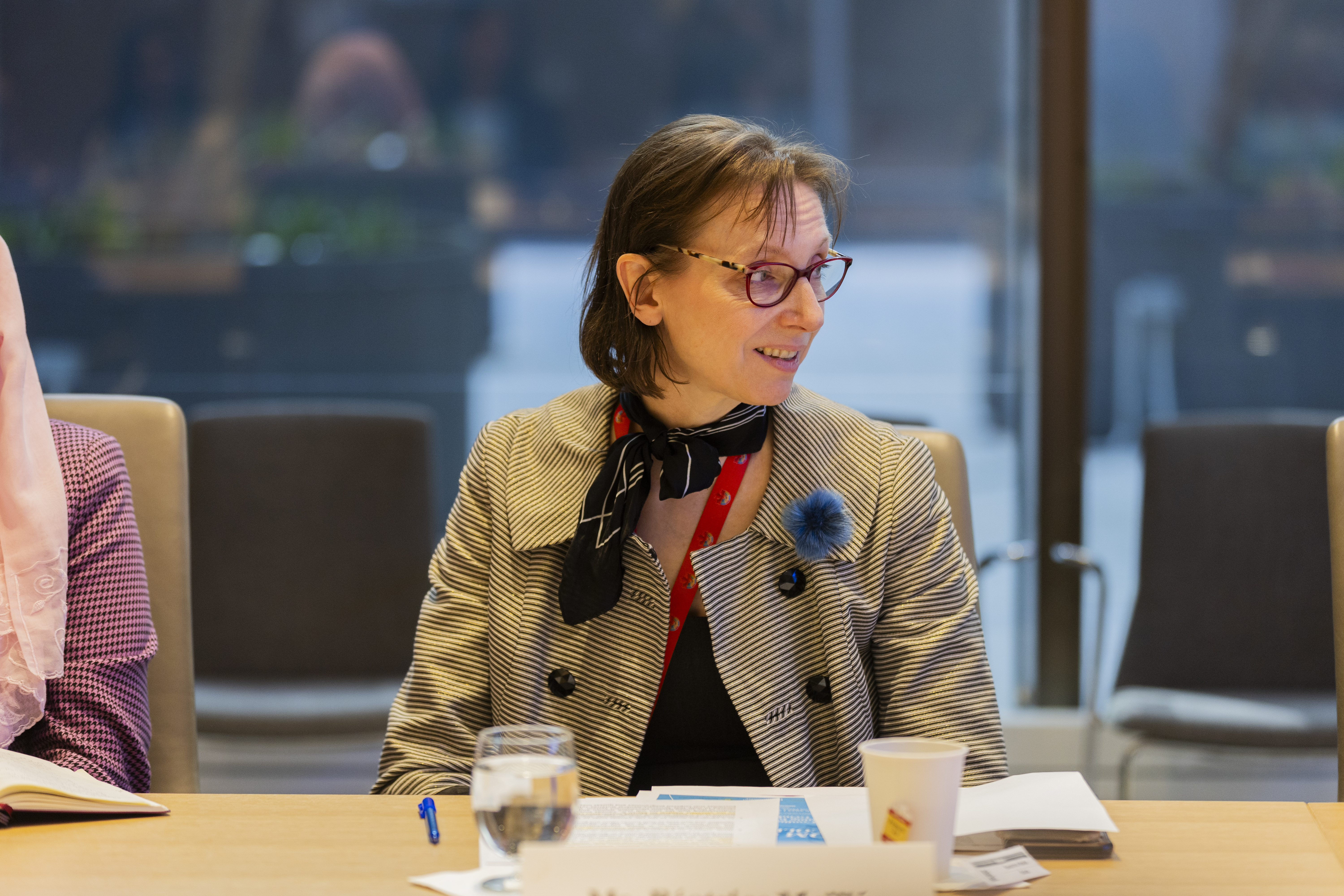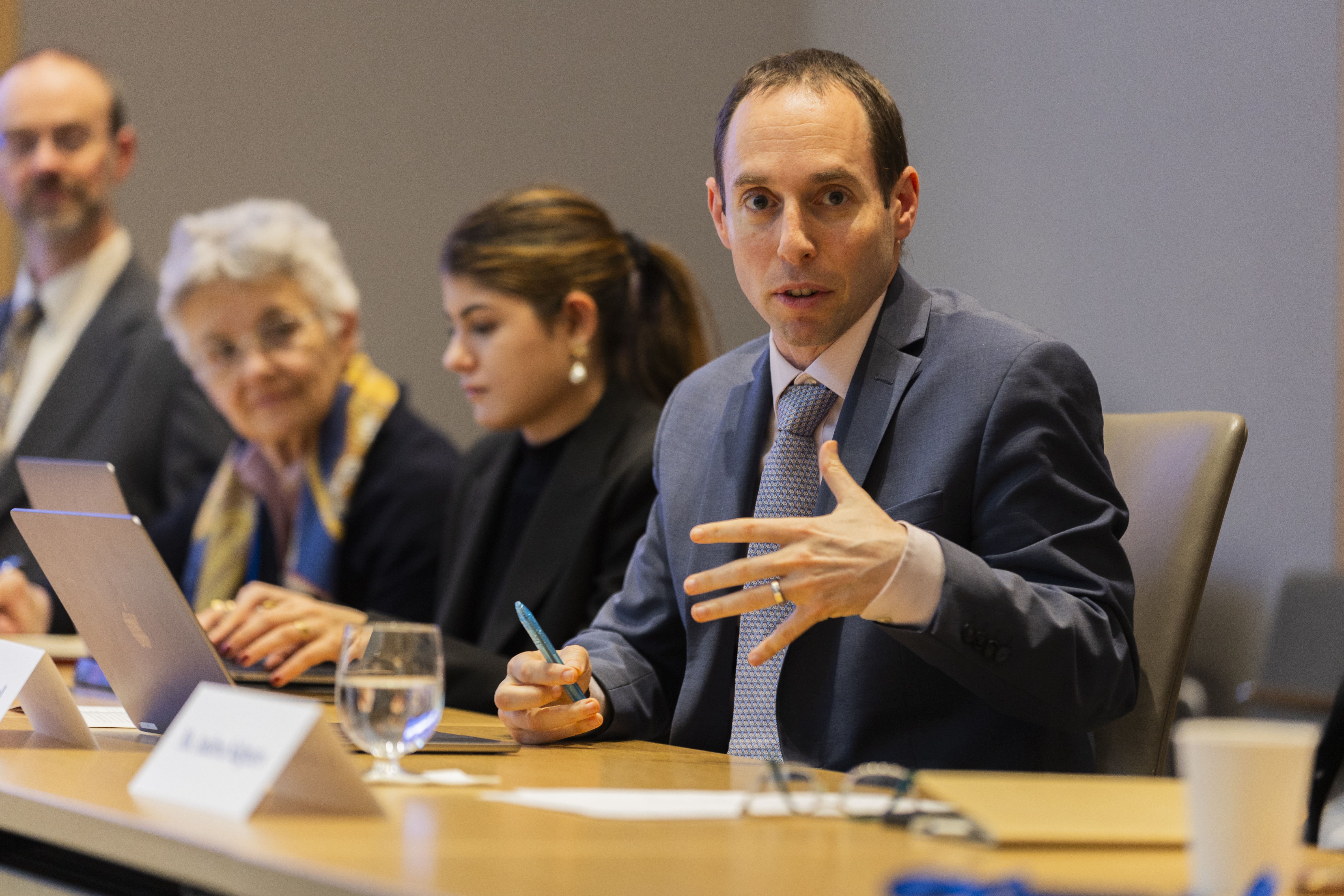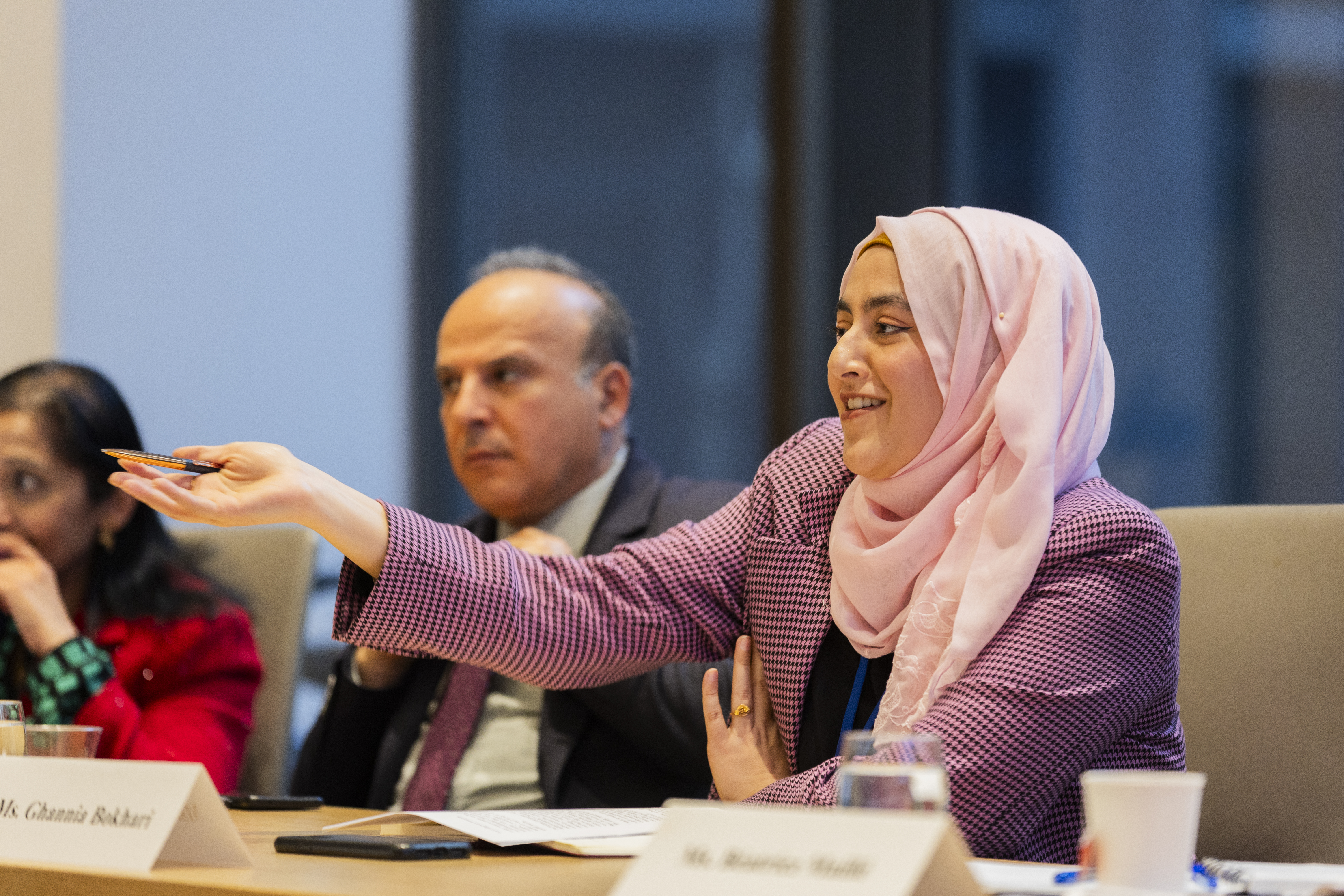The Offices of Public Affairs for the Baha’i Communities of Canada and Australia co-organized a parallel event at the 68th United Nations Commission on the Status of Women (CSW) on March 14. The hybrid panel titled “From Conflict to Collaboration: Transforming Institutions to Promote Gender Equality,” was held at the New York offices of the Baha’i International Community (BIC) and engaged 40 participants in a discussion on this year’s CSW themes of reforming institutions and addressing poverty.




The panel grew out of a recognition of shared challenges relating to the promotion of gender equality in Canada and Australia and was the first time the two Offices of Public Affairs collaborated to host an event at the UN. Panelists included members of government, civil society, and local organizations from both countries. Remarks focused on the profound institutional transformation required for lasting gender equality and the means by which this can be achieved.
“Institutions are more than the sum of their parts. They are more than just the aggregate of the individuals that work within them. We can see institutions as a reflection of our culture and the values that create them and sustain them,” said Andrea Salguero, Director of Public Affairs for the Baha’i Community of Canada, in her opening remarks.
Béatrice Maillé, Minister-Counsellor and Legal Adviser at the Permanent Mission of Canada to the UN, underscored the need for governments to engage all sectors of society to transform institutions for gender equality: “Gender equality is a fundamental right that must be protected. To do so we need to work with civil society, the private sector, young leaders, Indigenous peoples and others to transform institutions, ensuring they are fit for purpose and empowered to deliver an ambitious and important mandate,” she said.
Daniel Perell, a BIC Representative, commented on the importance of the local context as a site for shifts in culture happening around the world, “Places such as the school and the dinner table can be sites of change. In our work at BIC we can suggest how these local changes that promote gender equality could be reflected at the United Nations, based on a model of learning that is characterized by empathy and compassion and not by competition and power.”
Educator, activist, and executive committee member of the British Columbia Teachers’ Federation Jelana Bighorn spoke about her experience addressing tensions that can arise as a response to institutional and societal changes related to gender equality, “What I try to bring from a Lakota Indigenous perspective is the importance of relationality, that we are coming as relatives. This is to remove the sense of an adversary, that we are coming into conflict. … For women, we've been living in the winter season for far too long. We are just starting to see those first early blooms of springtime emerge, and it is ok to give us our season.”
Commenting on the relationship between poverty and gender-based violence in Canada, Ghannia Bokhari, a Canadian lawyer and gender justice advocate, discussed how domestic violence cannot be adequately addressed without far-reaching institutional change, “Any meaningful response to gender-based violence requires the transformation of multiple systems and sectors, and the elimination of the enabling conditions that heighten the risk of violence, especially poverty” she said.
Fariba Fanaian, a member of the Sisterhood Initiative from Mosman Park, Australia, closed the panel by describing how service projects initiated by women in her neighbourhood have brought families from different backgrounds together in close friendship and have positively impacted the existing relationship between residents and the Mosman Park town council.
To conclude the event, Awa Momtazian, Director of Public Affairs for the Baha’i Community of Australia left participants with a final reflection, “If there is one thing we have learned over the past few years, it is that society functions on the very human element of relationships. As we become increasingly interdependent, gender equality can only be achieved through stronger relationships not just amongst ourselves but between the private sector and multilateral forums in the public sector as well as institutions of various kinds.”
A recording of the panel discussion is available here.
The Baha’i International Community’s statement to CSW68 titled “Reimagining the Role of Institutions in Building Gender-Equal Societies” is available here.

